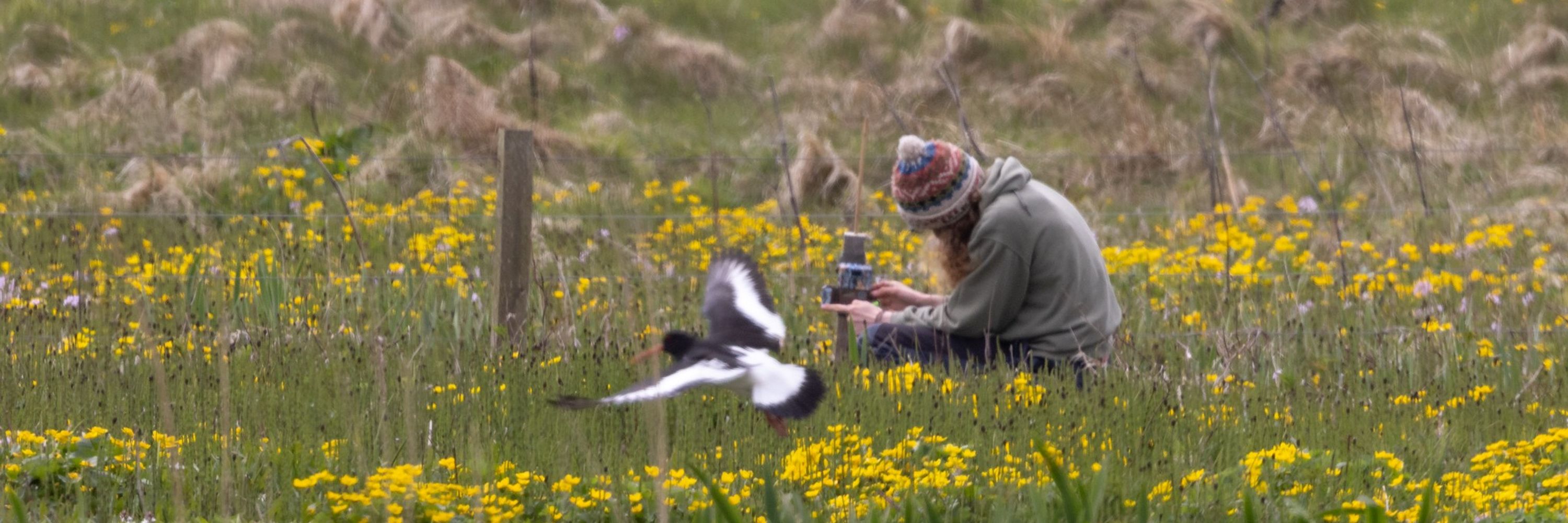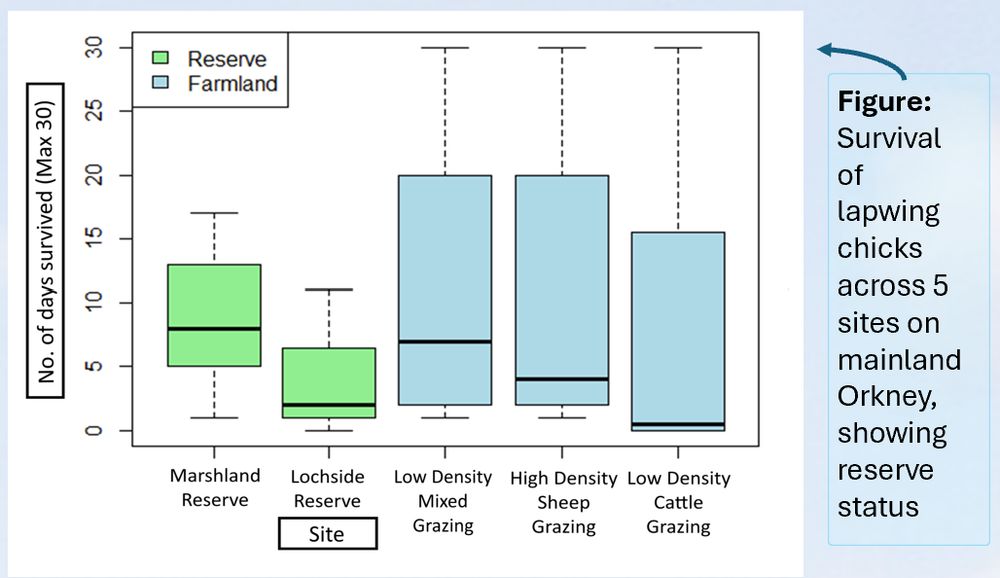
🔬Next steps: DNA Barcoding and beyond
•Identifying predators from field signs was not always possible.
•We're piloting DNA metabarcoding to ID predators from chick remains.
•Analysis is ongoing—more insights to come as we uncover more about the early lives of wader chicks
🔬Next steps: DNA Barcoding and beyond
•Identifying predators from field signs was not always possible.
•We're piloting DNA metabarcoding to ID predators from chick remains.
•Analysis is ongoing—more insights to come as we uncover more about the early lives of wader chicks
🌱 Growth & Habitat Effects
•Chick growth was highly variable across areas. Some chicks reached fledging condition weeks earlier than others.
•Chicks grew faster fields which were cattle-grazed, and wetter.
•Fields with standing water supported the highest growth.

🌱 Growth & Habitat Effects
•Chick growth was highly variable across areas. Some chicks reached fledging condition weeks earlier than others.
•Chicks grew faster fields which were cattle-grazed, and wetter.
•Fields with standing water supported the highest growth.
🐦⬛Who are the predators?
•Analysis of 23 predated chicks showed a range of predators, with no single dominant predator.
•This included: stoats, rodents, corvids, gulls & raptors.

🐦⬛Who are the predators?
•Analysis of 23 predated chicks showed a range of predators, with no single dominant predator.
•This included: stoats, rodents, corvids, gulls & raptors.
📊 Survival Results
•Only 5 out of 71 chicks monitored survived to 30 days. This is exceptionally low compared to previous years.
•This was likely linked to prolonged cold, wet weather in 2024 leading to poor survival conditions.
•Predation was the dominant cause of mortality (47/49 chicks)

📊 Survival Results
•Only 5 out of 71 chicks monitored survived to 30 days. This is exceptionally low compared to previous years.
•This was likely linked to prolonged cold, wet weather in 2024 leading to poor survival conditions.
•Predation was the dominant cause of mortality (47/49 chicks)
📌Background & Aims
•Breeding waders are in critical decline across Europe, linked to agricultural intensification & predation.
•Orkney is a stronghold for several wader species, but populations remain threatened.
•We radio tagged 49 Lapwing chicks to study survival rates.

📌Background & Aims
•Breeding waders are in critical decline across Europe, linked to agricultural intensification & predation.
•Orkney is a stronghold for several wader species, but populations remain threatened.
•We radio tagged 49 Lapwing chicks to study survival rates.

